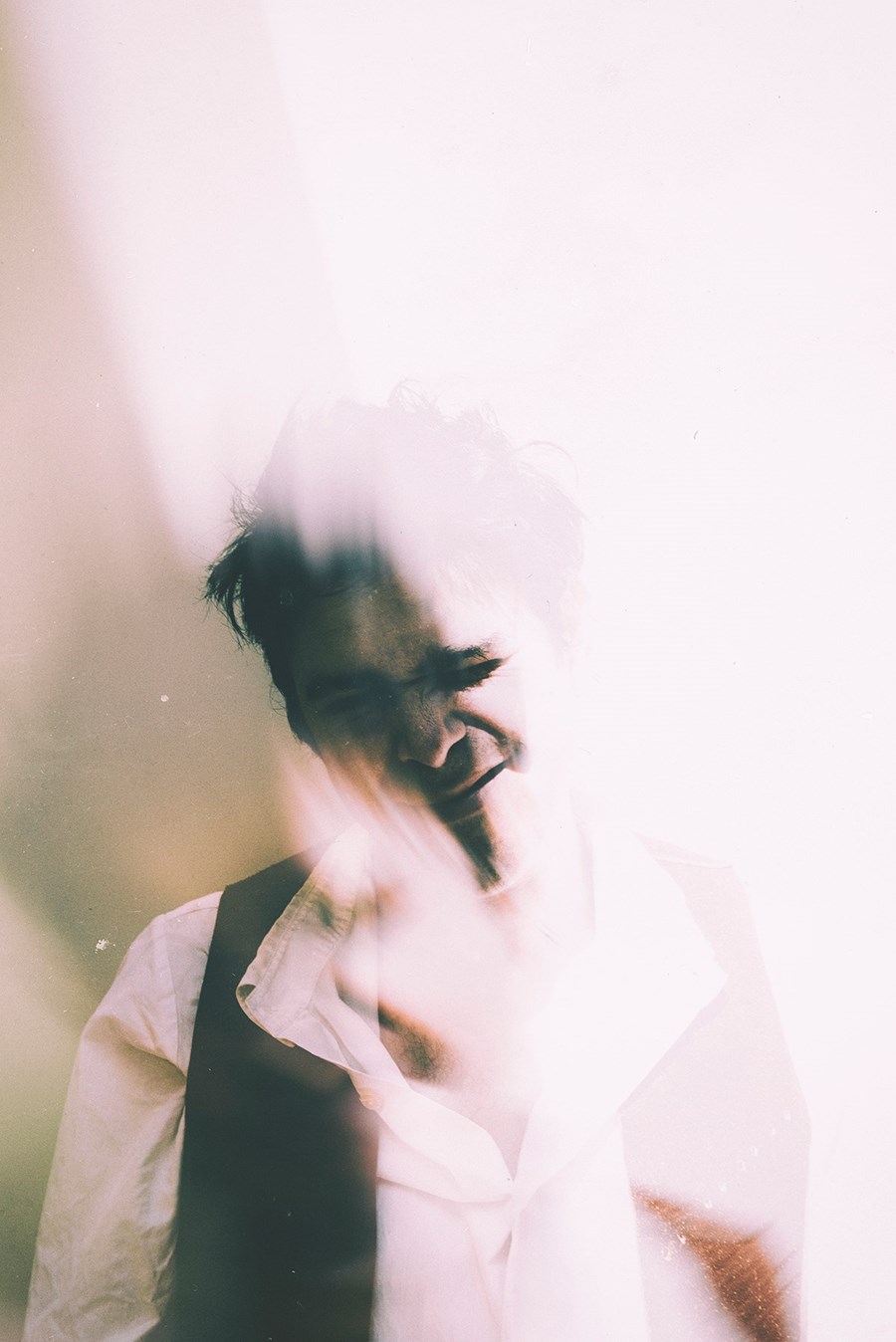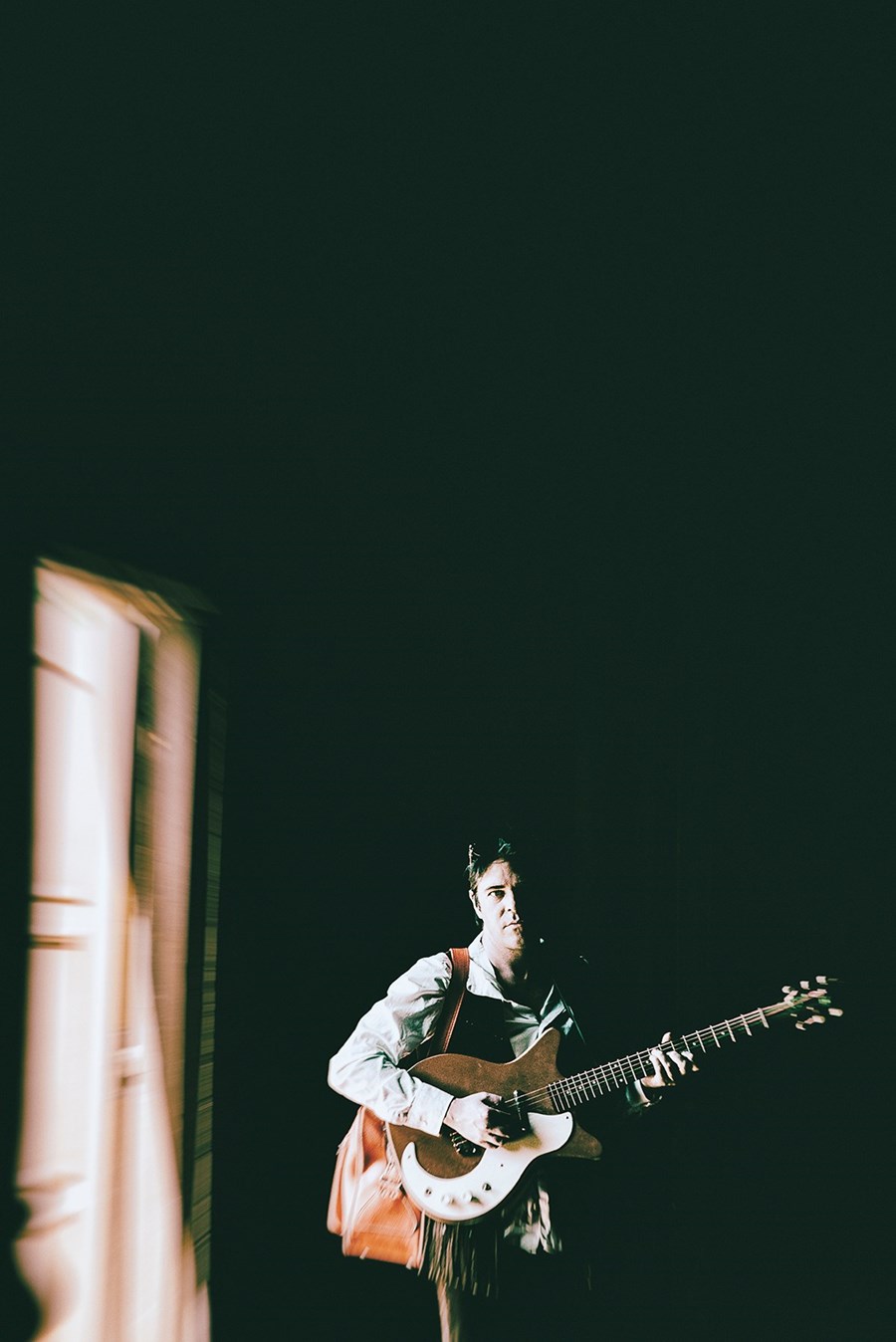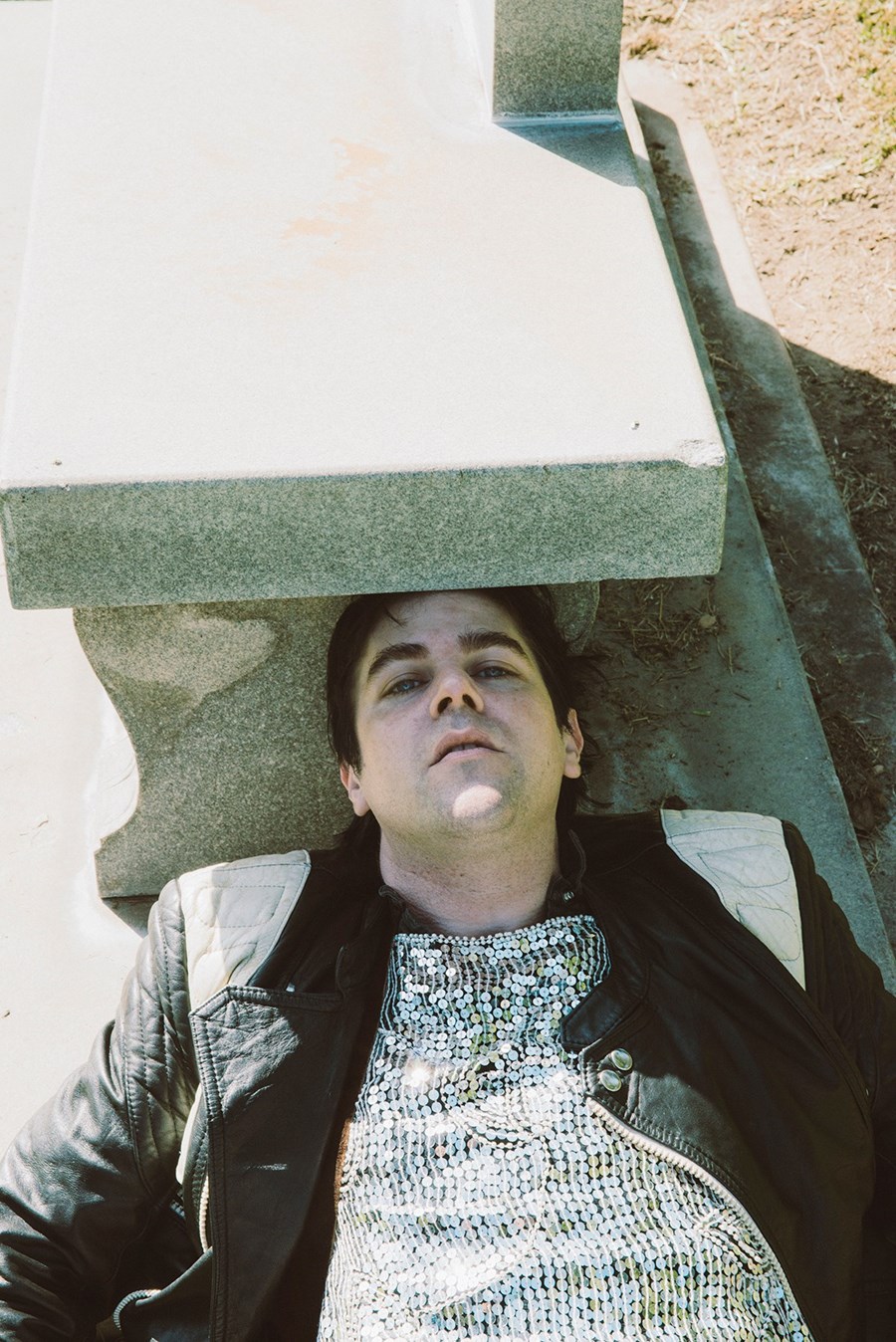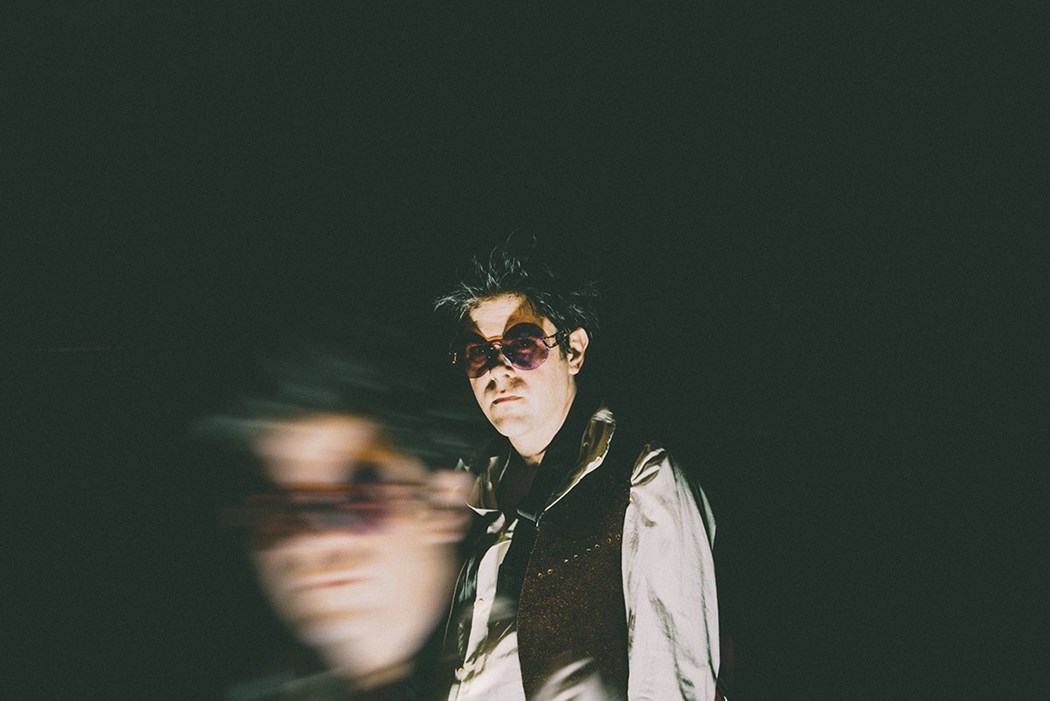Ariel Pink Has a Story to Tell
- TextTom Connick
The alt-pop oddball speaks to Another Man about rewriting his turbulent past, with a little help from new album Dedicated To Bobby Jameson
Ariel Pink doesn’t want to do interviews. He doesn’t want to tour, either; his upcoming dates are a “concession to the label” – a show of good faith. It’s hard to tell, sometimes, if he even wants to be a professional musician. He’s certainly not a workaholic – over a 45-minute conversation, Ariel speaks more highly and freely of his ability to “switch off” than he ever does of his musical ability. “When I’m at home, I zone out – stare at the wall,” he says with a smile. An indie hero that rejects every ‘all or nothing’ notion traditionally assigned to quote-unquote ‘musical authenticity’, to say Ariel Pink is a complex character would be to do him a grave disservice.
If there’s one thing Ariel Pink wants less than all those other things, though, it’s controversy. He’s weary today – whether it’s the rigmarole of the press junket he’s been unwillingly thrust into or just a hangover from a weekend of partying isn’t immediately clear. It’s not hard to imagine why talking might not be top of his to-do list, though. Last time he was thrust through this sausage machine of press, a runaway tongue and a devilish streak nearly made mincemeat of his whole career. His stage name was rarely seen without an inflammatory addendum – from seemingly siding with paedophilia and the Westboro Baptist Church, to supposedly decrying everyone from Madonna to his then-label 4AD, it seemed Pink couldn’t open his mouth without spewing out controversy. His story was written long before last album pom pom reached its listeners’ ears – ‘Ariel Pink: pop provocateur’. In the small print, though, he seemed more tired of his own voice than many would have you believe. “Just say something nice”, he asked of the Guardian in the wake of that media firestorm, while a similarly toned interview with DIY saw him admit, “I just want people to love me”.

These days, he’s resigned himself to those failures, the fireball of 2014 seemingly having burnt him out. “My learning curve is just a little bit slower than most,” he shrugs early on in our meeting, as he skirts around the dissolution of his relationship with 4AD. Moving onto the “PR campaign for [pom pom] that famously went awry”, he seems desperate to move on from a story he never wanted to be entangled in. “It doesn’t seem to be colouring too much of this campaign,” he says with a note of relief.
Ariel is at his most animated when discussing the subject that birthed his somewhat reluctant return – the late musician Bobby Jameson. An artist feared dead for 30 years after never quite hitting the limelight, Jameson re-emerged in 2007, penning tales of corruption, greed and music industry backstabbing through a blog and YouTube channel. Using his direct access to the web as a means to sidestep those who’d try to spin his words, Jameson intelligibly recounted an early-days career gone wrong; a tale of “how the pursuit of fame is as deadly as any narcotic I have ever used.” Before his death in 2015, 305 written blog posts and a full career’s worth of YouTube audio streams were uploaded to the web – a rewriting of Jameson’s own story in the man’s own voice. Ariel Pink’s new album, fittingly titled Dedicated To Bobby Jameson, is an ode to that redemption.
“How often does an artist get to design their own story – the way they’re going to be perceived and fated to be perceived?” – Ariel Pink
“How often does an artist get to design their own story – the way they’re going to be perceived and fated to be perceived?” Ariel questions. It’s something he’s clearly envious of.
“I just thought it was fucking incredible,” he admits. “I thought it was such a win on his part to be so lucid, to have such a lucid recollection of things; particularly when what he’s describing is a madman, 40 years ago. You don’t expect somebody like that – that’s talking to themselves like a crackhead on the sidewalk – to survive it, 30 years, 40 years down the line, and then go and describe his thought process exactly as he was going down the street, you know, hearing voices” – he peels off with a laugh. “People knew him more for being that guy on the sidewalk that was just belligerent and just spent all of the 60s frustrated. I mean like, there’s no summer of love in his world... there was no idealistic hope or anything like that.”

Engulfing himself in Jameson’s confessionals, Ariel Pink soon became obsessed with the story over all else – “his music’s okay,” he shrugs almost comically, “it’s not my favourite.” Digging deeper into the backstory, though, filled Ariel’s days and nights at home, as he shied away from recording a pom pom follow-up until financial realities (and the backing of new label Mexican Summer) made it a necessity.
“I thought it was quite a triumphant ending,” Pink continues. “If he hadn’t told the story, nobody would know it – he wouldn’t have had a life. That’s what is so cool about it. In the end, the history, the Wikipedia page – as far as the history books are concerned… he is the one who basically told the story.”
“I’ve never, ever tried to enter into the ring and be a hit-maker. I found myself, quite accidentally, sort of in the limelight” – Ariel Pink
Dedicated To Bobby Jameson owes little, musically, to Jameson’s dated sounds. Ariel admits that it’s “like coming down a little” after the riotous mania of pom pom, but his genre-melding psych-pop remains as sherbet-fuelled as ever. Time To Meet Your God’s yelped refrain and Time To Live’s Halloween dramatics fashion hooks out of oddball antics, while the bleached-out I Wanna Be Young is a weirdo’s warts-and-all traipse through mid-life anxieties. 60s soft rock this is not.
Despite the musical disparities, though, it’s near impossible to ignore the parallels between Bobby Jameson in 2007 and Ariel Pink in 2017. Two individuals who’ve suffered near insurmountable setbacks at the hands of the music industry’s punishing pace, it’s clear as day to see why Pink found such solace in Jameson’s story.

“I’ve never, ever tried to enter into the ring and be a hit-maker,” Pink says, kicking the dirt beneath him. “I found myself, quite accidentally, sort of in the limelight. In whatever way that I’ve been, it’s kind of always a fluke. I feel like the industry stalwart. Just hang me up with Beetlejuice, or whoever you want – Pauly Shore, Richard Simmonds… yesterday’s dad-rock pedigree.”
Pink talks avidly of a desire to spread his albums out further and further, returning only when finances require him to, until eventually there’s no need for him to return at all. “I definitely could be considered a miser,” he shrugs, “Or like, you know, somebody that’s a little bit too… money-oriented, or something like that. But I literally pay for my time – for my peace of mind, you know? That’s all it is.”
“I definitely could be considered a miser,” he shrugs, “Or like, you know, somebody that’s a little bit too… money-oriented, or something like that” – Ariel Pink
Peace of mind seems to be the one thing Pink truly longs for. As Dedicated To Bobby Jameson approaches, and Pink looks longingly towards returning home once more, there’s a confidence in his words that belies their self-deprecating nature. “I’m in the best place that I’ve been in, in my life so far,” he admits, financial security, a good headspace and a long-term, healthy relationship all contributing to the singer’s less erratic recent demeanour.
It’s that which, with any luck, will prevent Pink from disappearing, Jameson-style, before he’s had his say. “I think, really, he had a very toxic relationship with his identity,” Pink shrugs of his latest muse, stepping to his feet. “I don’t think that there’s that much of a risk of that happening to me anymore.”
Dedicated To Bobby Jameson is out on 15 September, 2017.












